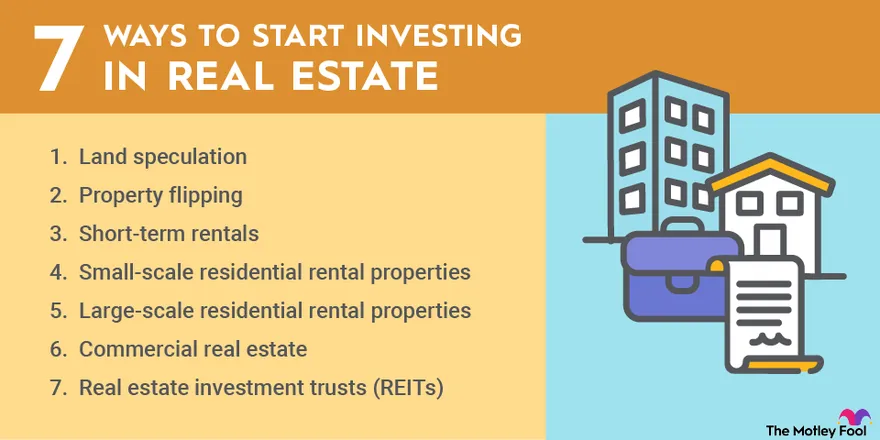
Are you looking for a way to make an investment and earn some passive income? Real estate could be something to consider. It can be complicated and intimidating but doesn't have to be. With the proper knowledge and guidance, anyone can invest in real estate and build wealth over time. You don't need to be a financial expert.
Develop a plan and set investment goals
Before investing in real estate assets, developing a plan and setting clear investment goals are important. This includes identifying the type of property you want to invest in, the location, and the expected return on investment (ROI). You have to do your research.
Real estate markets can vary greatly depending on the location, so it is important to research the local market thoroughly before making any investments. To understand market conditions, look at property values, vacancy rates, rental rates, and demographic trends.
Location
Location is one of the most important factors when buying an investment property. A property in a desirable area can command higher rents and appreciate more quickly than one in a less desirable location. Will you live close to the rental property so it will be convenient to manage?
Property condition
The condition of a property is also crucial. If it is good, it will require less maintenance and repair over time. If not, it may require significant investment to bring it to a desirable standard. Can you purchase a turnkey home, or must it be a more affordable ‘fixer-upper'?
If a home needs a lot of work before moving tenants in, this can affect your timeline and overhead.

Image Source: The Motley Fool
Will you need financing?
Real estate is expensive, so it is important to consider financing options carefully. This includes looking at traditional arrangements like mortgages and alternatives such as hard-money loans or private lenders. Can you make a sizable downpayment to make the mortgage cheaper? The cheaper the mortgage, the more profitable the rental income will be.
Understand the risks involved. Real estate investing can be risky, so it is important to understand the downsides. This includes property maintenance and repairs, tenant turnover, and market fluctuations undermining either values or rental income.
Job loss, as well as changes in your family or other circumstances, could affect your finances. If you're mortgaged to the hilt, you could be putting yourself in financial danger. Putting all your money into real estate could make it hard to access any emergency funds needed at short notice.
Maximize your investments
1. Build a network of professionals: Real estate investing can be complicated, so it is important to build a network of professionals to help guide you through the process. This includes a real estate agent, attorneys, accountants, and property managers.
2. Start small and scale up: Real estate can be overwhelming, so starting small and scaling up gradually is important. This includes investing in a single rental property or REIT before taking on larger investments.
3. Manage your investments actively: Real estate investments require active management, including maintenance, tenant management, and financial reporting. Stay on top of these tasks to ensure the success of your investment. Don't be a slumlord!
Overall, investing in real estate can be a great way to build wealth and generate passive income, but it requires careful planning and a deep understanding of the risks and rewards involved. By following these tips, an amateur real estate investor can get started on the path to success. Don't be afraid to seek professional help, and don't jump in without considering all of the options first.
What kind of property investment are you looking for?
According to Investopedia, there are many different ways to invest in real estate, including rental properties, real estate investment trusts (REITs), flipping (buying and selling at a profit), and commercial real estate buildings.
As one of the real estate investors each type has its own set of risks and rewards, so it is important to understand the differences before deciding which to pursue.
Fix and flip
‘Fix and flip' is a short-term investment strategy that involves purchasing a property, making improvements, and selling it for a profit. It can be risky and requires significant effort and money to succeed. Do you have the construction skills to remodel a home, or would you hire contractors? Anything you hire will cut your bottom line, but so will shoddy DIY work.
You would also be at the mercy of a contractor's timeline, supply chain issues, and any undiscovered problems with the property that may emerge. Depending on how you make your purchase, you could be in for some terrible surprises. For example, auction homes and foreclosures may be cheaper but are usually sold "as-is" and don't come with a home inspection. Any structural issues could be costly to repair and affect the home's selling price.
Rental Properties
Rental properties involve purchasing a property to generate income from rental payments. They can be a good investment for those looking for a steady stream of income and a long-term investment. Depending on the purchase price and whether you must take out a mortgage, you could profit from renting.
You also will have to deal with tenants or hire a management company for real estate transactions. Hiring a company to handle your rental properties can reduce the stress but will reduce your income.
Owning real estate to rent could be especially beneficial if two couples share one home and keep another for renting out. If this doesn't seem feasible right now, consider renting out a basement apartment or an extra room. You could also look into short-term rentals such as Airbnb or VRBO. That way, if only temporarily, you could test the market and see how you feel about being a property manager. If you live in a desirable city, you could make a decent income by renting out your current home.





